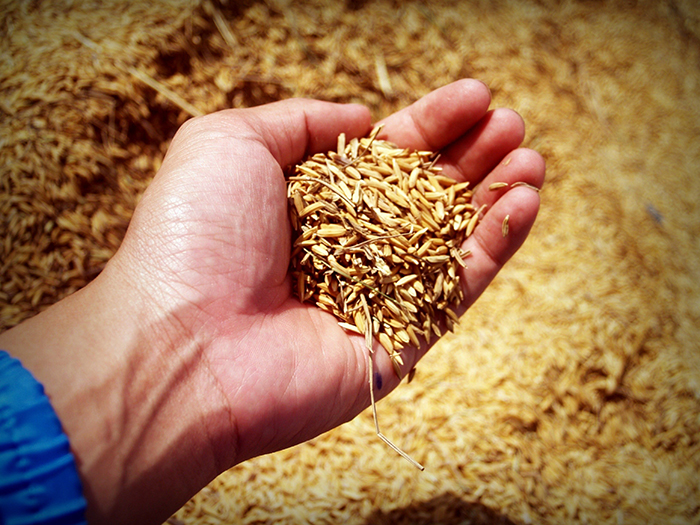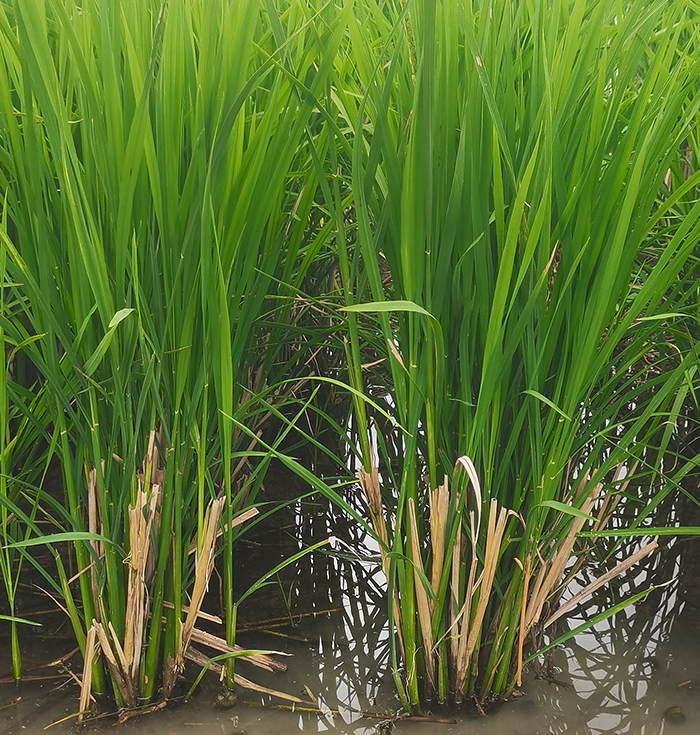Why perennial rice can be a game changer for farmers in China and beyond | SCMP
2022-10-29

Chinese researchers say perennial rice can reduce production input costs by more than 50 per cent and simplify crop management.
The Chinese government is trying to encourage farmers to plant a new rice variety that can be harvested for several years without reseeding.
A list of favoured varieties produced last month by the Ministry of Agriculture and Rural Affairs included a strain of perennial rice with twice the yield of traditional strains.
The variety is the world’s only commercially viable perennial grain, according to BGI Group, a Shenzhen-based company that took part in a joint venture with Yunnan University to develop the strain.
Compared with most rice crops, which have to be replanted each year, perennial rice is cheaper and less labour intensive to produce, and scientists say it can also be better for the environment.
Liu Huan, the Head of BGI Bioverse, said perennial rice was revolutionary.
“There are many areas where mechanised farming is not available or there are labour shortages, or where much of the land is underused,” he said.
“With this rice variety, we can make good use of abandoned farmland, so the ministry of agriculture is very supportive about promoting the variety.”
Scientists first came up with the concept of a grain that could produce crops for years without the need for replanting in the 1930s. But it was not until the 1980s that researchers started to make progress on the concept, with experimental varieties of wheat, corn and rice being produced around the world.
The strain promoted by the agriculture ministry was developed by Hu Fengyi, a professor at Yunnan University’s Agriculture College.
It was first made available to farmers in the southwestern province in 2018 and it has a yield of about 15 tonnes per hectares – more than twice the average for conventional strains, according to the China Rice Data Centre.
Meanwhile, perennial rice can reduce production input costs by more than 50 per cent, according to Hu’s research, and simplify crop management.
A preprint study published on Research Square found that the cost of producing perennial rice was about the same as that of annual varieties in the first year, but because it does not need seeding, planting and ploughing in subsequent years, farmers can save up to US$1,400 a season.
Laura van der Pol, an ecologist at Colorado State University, said perennial grains could help make food production more sustainable and reduce many of the “disservices” introduced by agriculture.
“Perennials reduce [soil] erosion in a couple of ways,” she said. “They reduce soil disturbances because plants are left in place to grow for multiple years, thus there is less mechanical disturbance by farm equipment.”
Roots growing in the soil year-round also help to maintain and restore soil structure, she said, adding that perennials also reduce weeds after plants are mature, promoting soil biodiversity and the accumulation of organic soil matter.

Perennial rice in the field – note that the crop base shows signs of previous harvests.
But van der Pol noted that perennial grains also help crop pests or soil pathogens to accumulate over time, so some sort of rotation or measures such as growing the rice alongside another crop – a process known as intercropping – will still be necessary.
In April, BGI Group signed a strategic cooperation agreement with Yunnan University, and the two parties established a joint venture focusing on the promotion and industrialisation of perennial rice.
So far, perennial rice has been planted at 117 locations in southern China, covering an area of more than 400 acres. It has also been promoted to 17 Asian and African countries, including Uganda, Ethiopia, Laos, Myanmar and Bangladesh, according to BGI Group.
“China produces a quarter of the world’s grain with less than 10 per cent of its arable land. When we consider the potential savings, enhanced yields as well as environmental benefits, perennial rice can be truly revolutionary for farmers,” Liu said.
Source: South China Morning Post
Additional Reading
Perennial rice incorporates African wild rice genes and halves production cost l BGI Perspectives
About BGI Genomics
BGI Genomics, headquartered in Shenzhen, China, is the world's leading integrated solutions provider of precision medicine. Our services cover more than 100 countries and regions, involving more than 2,300 medical institutions. In July of 2017, as a subsidiary of BGI Group, BGI Genomics (300676.SZ) was officially listed on the Shenzhen Stock Exchange.